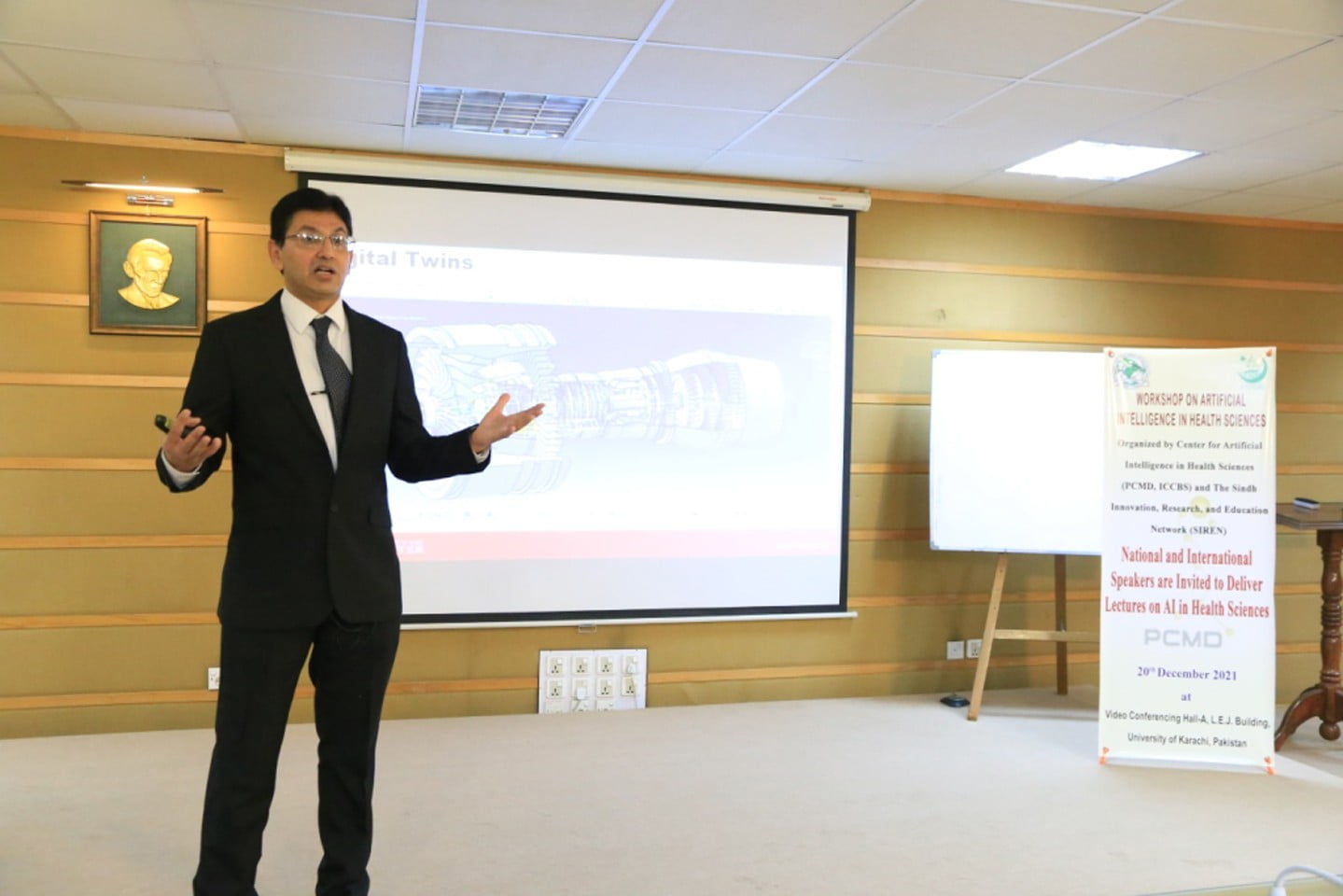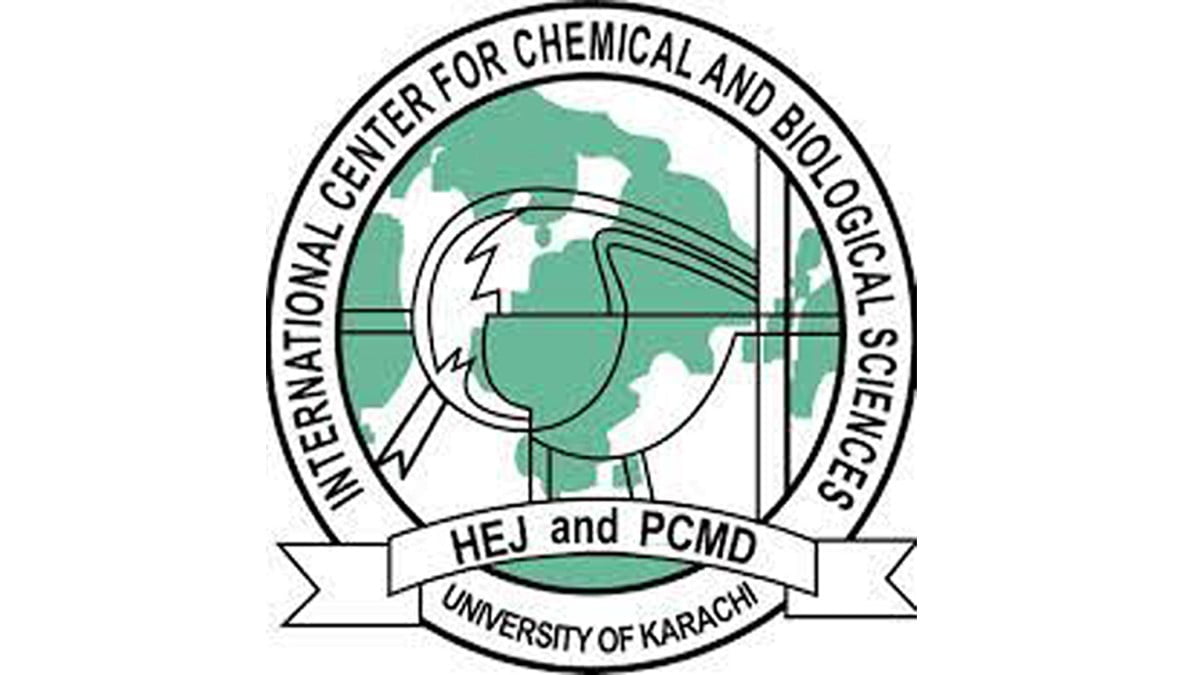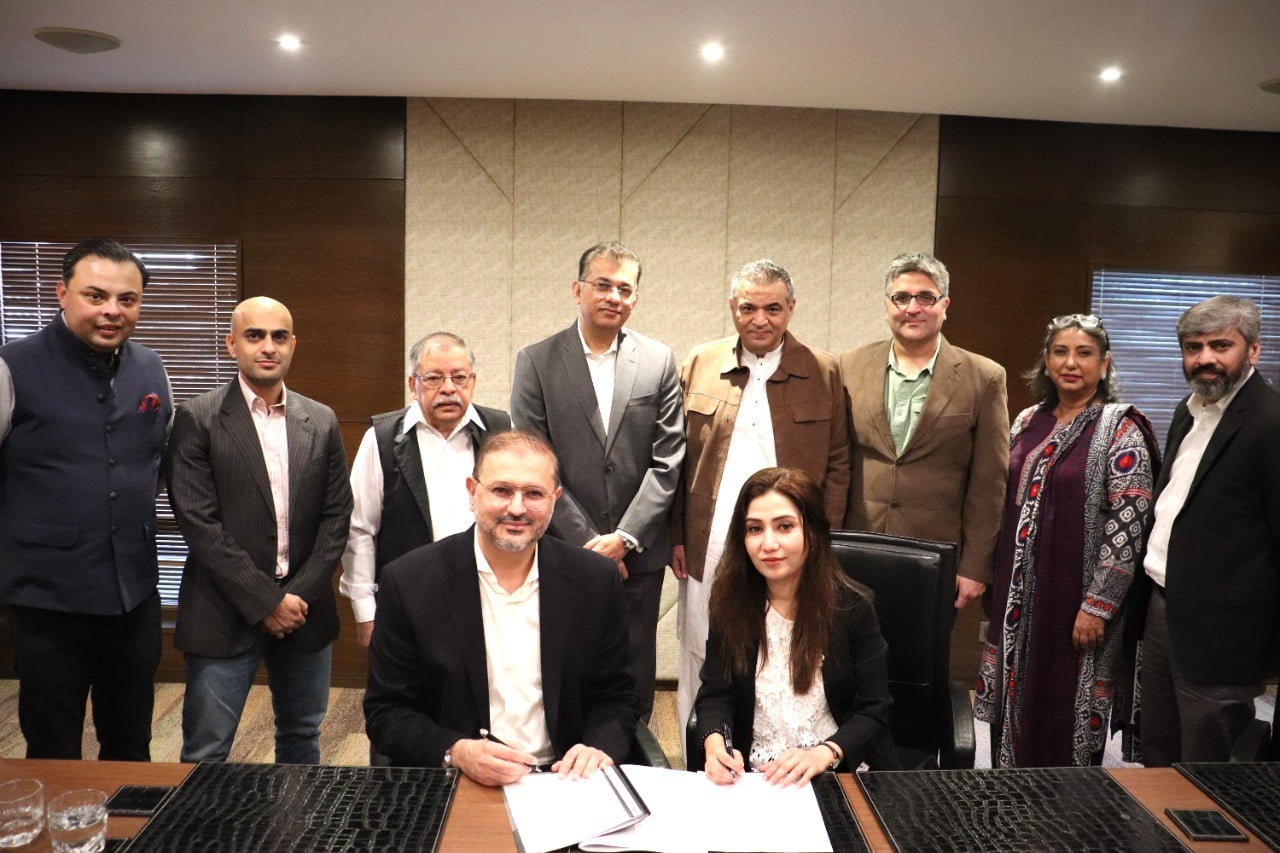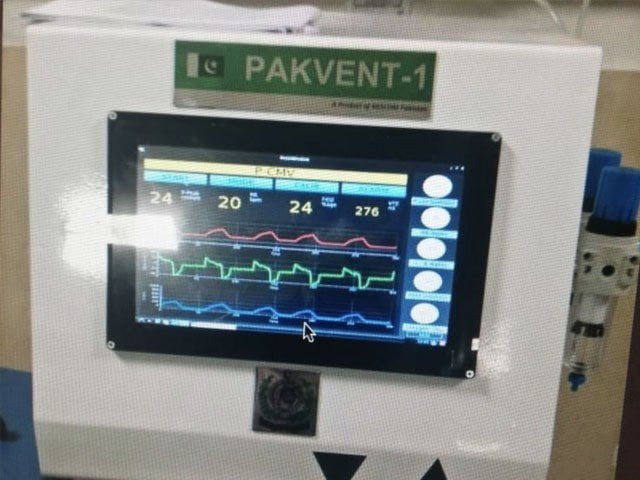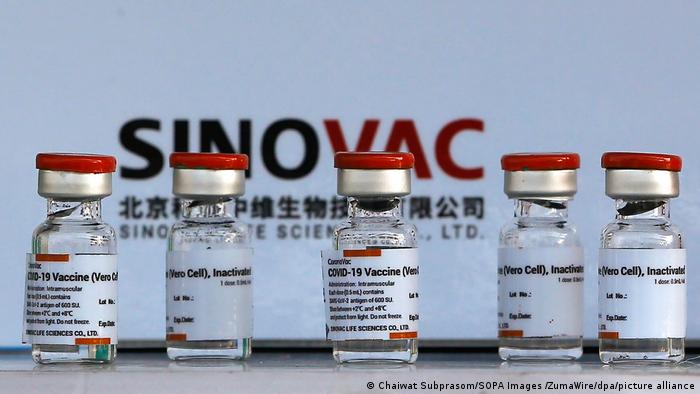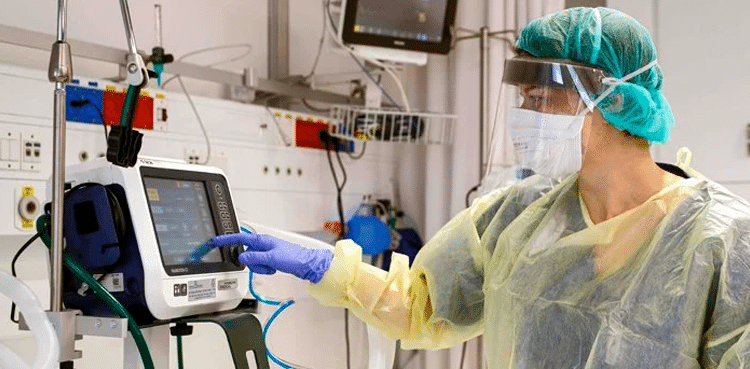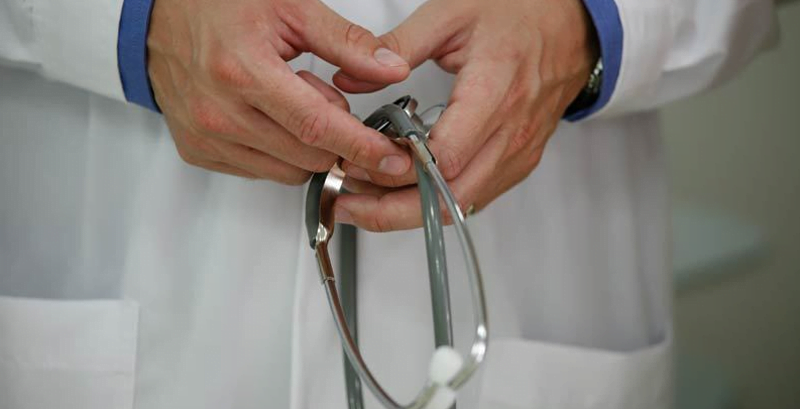“The healthcare industry in Pakistan is ready for some major changes, while Artificial Intelligence (AI) can bring significant changes in the health care system by simplifying the lives of patients, doctors, and hospital administrators.
The establishment of the Center for Artificial Intelligence in Health Sciences was a need of the time, and this center is being set up under Dr. Panjwani Center for Molecular Medicine and Drug Research (PCMD), University of Karachi.”
Prof. Dr. M. Iqbal Choudhary, Director of the International Center for Chemical and Biological Sciences, and COMSTECH Coordinator General expressed these views while speaking at the One-day Workshop on “Artificial Intelligence in Health Sciences” held on Monday jointly organized by Dr. Panjwani Center and Sindh Innovation Research and Education Network (SIREN).
The workshop was held in the building of L.E.J. National Science Information Center, University of Karachi. Dr. Reaz Udin, associate professor at PCMD, presented the welcome address, while Prof. Dr. Ashiq Anjum from the University of Leicester, UK, delivered the keynote. Among others who talked about the advanced applications of AI in the health care domain included Prof. Dr. Imran Nisar from the Aga Khan University, Prof. Omer Rana, Dean of International School of Computer Science and Informatics, Cardiff University, UK, and Prof. Huiyu (Joe) Zhou, School of Computing and Mathematical Sciences, University of Leicester, UK.
Prof. Choudhary said, “Artificial intelligence simplifies the lives of patients, doctors, and hospital administrators by performing tasks that are typically done by humans, but in less time and at a fraction of the cost.”
He said ICCBS took an important initiative to invest and train manpower in the cutting-edge discipline of artificial intelligence applications in health sciences.
This initiative is taken to modernize the current healthcare systems of the country, he said, adding that the main objective of this initiative is to acquire the indigenous capacity for the establishment of a state-of-the-art center for the capacity building and applications of AI in focused fields of health sciences, which will serve the country, and its people. ICCBS has all infrastructure to initiate this proposed training center of AI in health and it has a history of the successful implementation of new research disciplines in the country, he said. The proposed center of AI in health will produce a critical mass of trained people who can lead the AI applications across the country, and contribute to the Knowledge Economy of the country, he mentioned. “I am thankful to Prof. Dr. Ashiq Anjum who is providing his expertise and time with the utmost commitment to lead this project as an international expert in the subject,” he said, and also thanked other national and international experts who participated in the workshop. He hoped that this workshop activity would play a great role for the participants to identify new directions in the field of AI in Health Care. In the end, Prof. Dr. Farzana Shaheen distributed certificates among the workshop participants.

